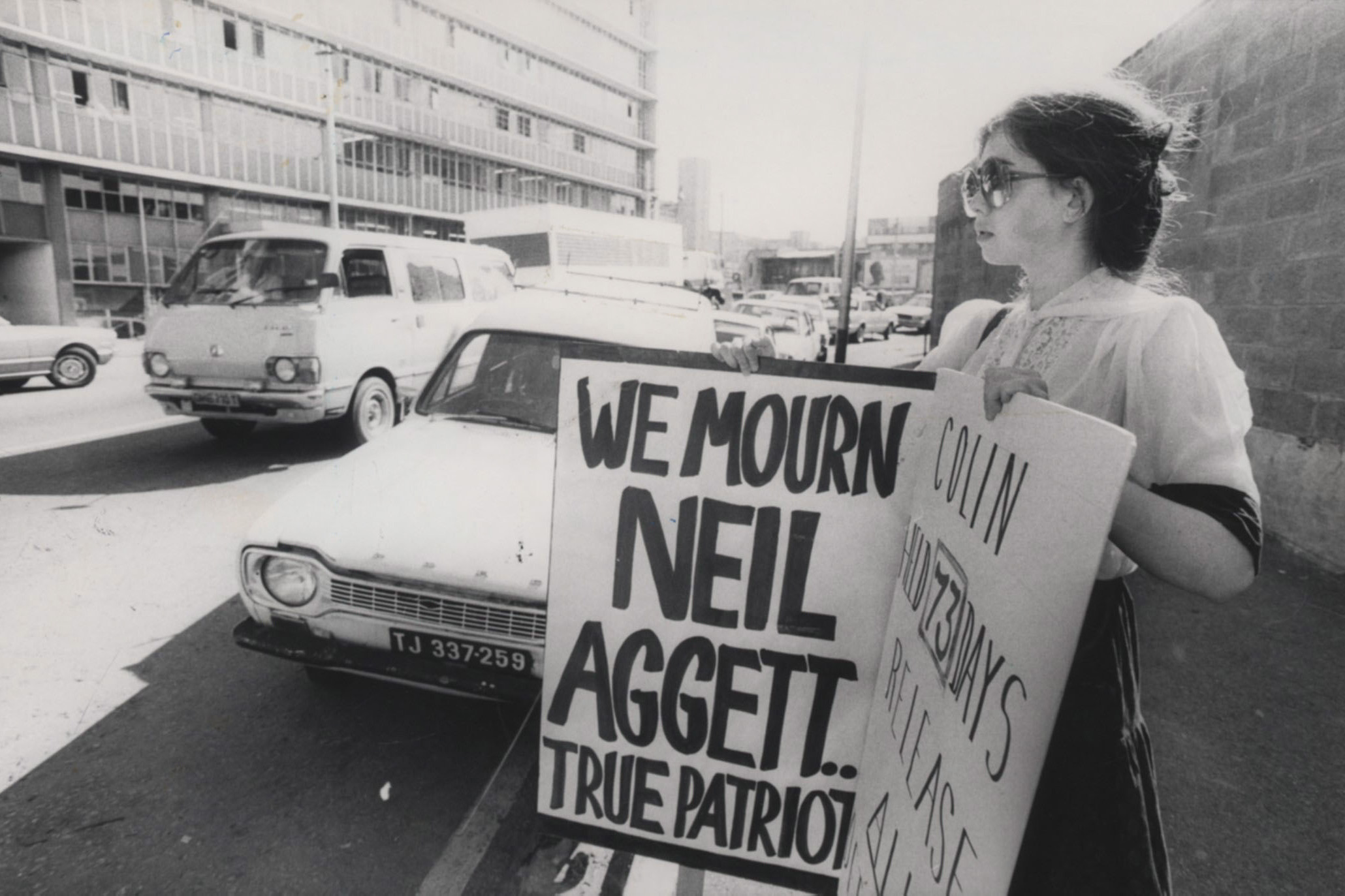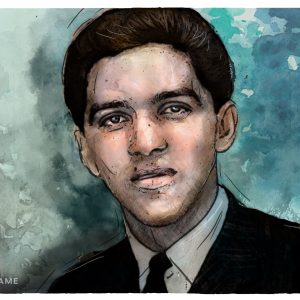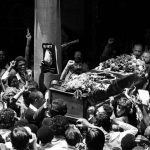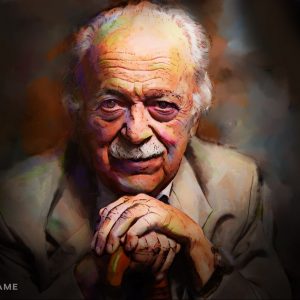Old security police likely to remain mum on Aggett
As the reopened inquest into the death of anti-apartheid activist Neil Aggett picks up again, his sister Jill Burger admits to having to adjust her expectations of the outcome.
Author:
18 January 2021

“The struggle of man against power is the struggle of memory against forgetting,” wrote Milan Kundera in his 1979 novel, The Book of Laughter and Forgetting. Kundera’s simple but effective words have since become something of a mantra to those who fought against and were victims of the brutality of authoritarian regimes.
In South Africa, former Treason Trialist Lionel “Rusty” Bernstein turned to Kundera for the title of his 1999 autobiography, Memory Against Forgetting. The same phrase served as the title of a 2014 book of photographs by legendary apartheid-era lensman Ranjith Kally.
Memory offers a powerful tool for debunking official versions of history, and nowhere will this be more evident than in the testimony given from today during the continuation of the reopened inquest into the death of trade unionist Neil Aggett.
Related article:
The inquest before Judge MA Makume began a year ago in the Johannesburg high court. But proceedings were delayed at the end of February when the judge was admitted to hospital and again in March when the country entered lockdown as a result of the Covid-19 pandemic.
Up to that point, the evidence given by Aggett’s family, friends, fellow former detainees, activists and expert witnesses painted, through the determined collective power of their memories, a very different picture to the one accepted by presiding magistrate Petrus Kotze at the first inquest in 1982. Then, Aggett’s death by hanging was ruled a suicide for which no one was to blame.
Shortly before proceedings were postponed, Makume heard evidence from the first of a long line of former security police officers scheduled to give testimony, then adjutant officer Nicholas Deetlefs.
Deetlefs stuck to the version of events he gave at the original inquest, and used his ill health and the passage of time as reasons for his inability to remember everything clearly.
Related article:
His stubborn determination represents the other side of the memory-against-forgetting coin. If the memories of Aggett’s fellow detainees have been carefully kept for more than four decades and used as a powerful means of refuting the apartheid government’s version of events, then the memories of the men who served the regime will obstinately mirror the evidence they originally gave. Or they will be too frayed by the passing of time or the effects of ageing to offer anything new. If the struggle of man against power is indeed the struggle of memory against forgetting, then the struggle of power is to make man forget.
The list of witnesses is now dominated by the surviving former members of the security police who gave testimony at the first inquest. If Deetlefs’ performance is anything to go by, they too are likely to remember only what they said in 1982 and may plead that they can’t be expected to remember clearly things that happened 39 years ago. They are now in their 60s and 70s, which puts them in the high-risk category for Covid-19, and proceedings will take place online.
As such, there will be no chance for Aggett’s sister Jill Burger to look her brother’s former tormentors in the eye; no means by which Makume may be able to ascertain from their breathing, body language and discomfort if they are telling the truth; and none of the attendant awkwardness that may result from giving testimony in a courtroom full of spectators and television cameras.

‘A very uncomfortable place’
Speaking by phone from the United Kingdom, Burger said the virtual format of the continuation will make things easier for the former security police members.
“It’s quite a lonely place to be, standing in a witness box with a judge next to you and some fairly careful cross-examination by the advocates, in front of a gallery full of people who are hanging on your every word,” said Burger, who has already given testimony in the reopened inquest. “It becomes a very uncomfortable place and they won’t have that discomfort now. So I think it will make a difference. But the judge will be there and I’m sure he has been listening very carefully to all that has gone before, and he will be making up his own mind.”
Related article:
Burger is Aggett’s only surviving immediate family member. The testimony given by activists, detainees and forensic experts has begun to answer the two burning questions she has had for the past 39 years. “First, to understand why they had pursued Neil so relentlessly. And second, what actually happened to him – how did he actually die?
“After listening to all the testimony that was given in the court a year ago, I had a fair idea of why they pursued him,” she said. “I think we had an insight into how the security police were behaving at the time and they were just desperate to charge someone other than Barbara Hogan, and they seemed to just take it to extraordinary lengths to try and get a conviction.
“So you’re in the worst place, because if you haven’t got anything to give them and they don’t believe you’ve got nothing to give them, where do you go from there? And I think that’s the position Neil was in.”

‘Personal vendetta’
Burger said she believes Aggett’s chief interrogator, Stephan Whitehead, was pursuing a personal vendetta against her brother. “He wanted to have the kudos that went with interrogating someone so severely that they eventually coughed up some ridiculous submission, which obviously Neil didn’t cough up because it wasn’t there. So I think it became a personal vendetta in a sense, because he [Whitehead] was a young man with all these very well-connected relatives and … it was his way of proving himself.”
As to how her brother died, Burger recalled that “as we were approaching the end of the last weeks of cross-examination, one was getting some idea from the other detainees and from the other witnesses that it was very likely that Neil was deeply unconscious by the time he was returned to his cell after this period of terrible, intense interrogation and torture. It appeared very clear to me, and I hope the judge felt the same, that it was a staged hanging.
“Neil didn’t actually hang himself, but he was so close to death that I think they probably thought that he was dead. And I think he was probably deeply, deeply unconscious … and they killed him by staging this hanging.”
Related article:
Burger initially hoped that one of Aggett’s interrogators might come clean this time round and tell the truth about what happened to her brother. But since hearing Deetlef’s testimony, she has resigned herself to the fact that “it seems unlikely that anybody coming up now for cross-examination will ultimately be charged. It seems to be that they’re incapable of coming clean and telling the truth,” she said.
Burger still hopes the Aggett family will receive the comfort offered by a reversal of the original inquest findings and a rejection of Aggett’s death as a suicide. “Up until Whitehead’s death [in April 2019], my chief hope was to get him into the dock and see him charged. But all that’s gone now.” However, she pointed out, “he still has a family and the truth about what he got up to and what he was like should be exposed. It shouldn’t be the case for Whitehead’s family comfortably living in Johannesburg that hearing this testimony shouldn’t matter to them.”
Fitting tribute
The outcome of the reopened inquest will not only offer comfort and resolution to Aggett’s family. It is being watched keenly by other families whose loved ones died at the hands of apartheid security forces, and who have still not found justice and closure.
A favourable verdict in the Aggett inquest will also serve as a fitting tribute to legendary human rights lawyer George Bizos, who died in September 2020. Bizos who represented the Aggett family during the original inquest, fought for justice for decades for many families and victims of apartheid representing them in countless apartheid-era inquests that repeatedly found no one was to blame for their deaths and torture.
Related article:
The Aggett inquest resumes with testimony from former security police captain Martin Johan Naude, who took charge of the interrogation of Aggett before it was handed over to Whitehead in January 1982. Naude was involved in the interrogation of other activists, including Hogan and Aggett’s partner Elizabeth Floyd.
During the initial inquest in 1982, Naude maintained that he’d had a good relationship with Aggett and that he had concluded the activist was “an ANC sympathiser”, which to his mind was no different from being a member of the banned organisation. Naude said that while there was a possibility Aggett may have been tortured, he found this to be “highly improbable” and “would not have turned a blind eye to an assault”.
It remains to be seen if Naude’s memory now is as unshakeable as that of Deetlefs and the other members of the security police who will follow him over the course of the next month.
What Burger and her lawyers can probably prepare themselves for is a long month of forgetting on the part of those who had a hand in her brother’s interrogation and death. If the testimony of the victims of the apartheid regime’s brutality has demonstrated – as poet Don Mattera reminds us – that memory is the weapon, then it is depressingly likely that the testimony of those responsible for enforcing that brutality will show that it’s a weapon they dare not discharge, for fear of what secrets it may reveal and what lies it may expose.





